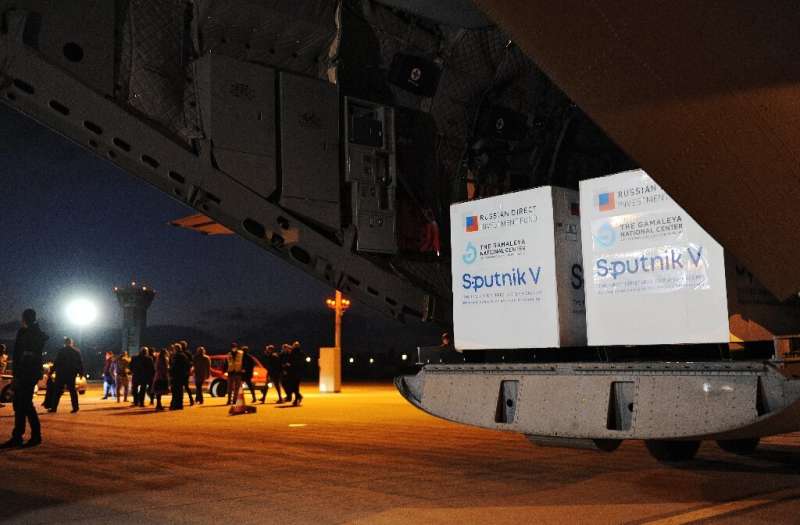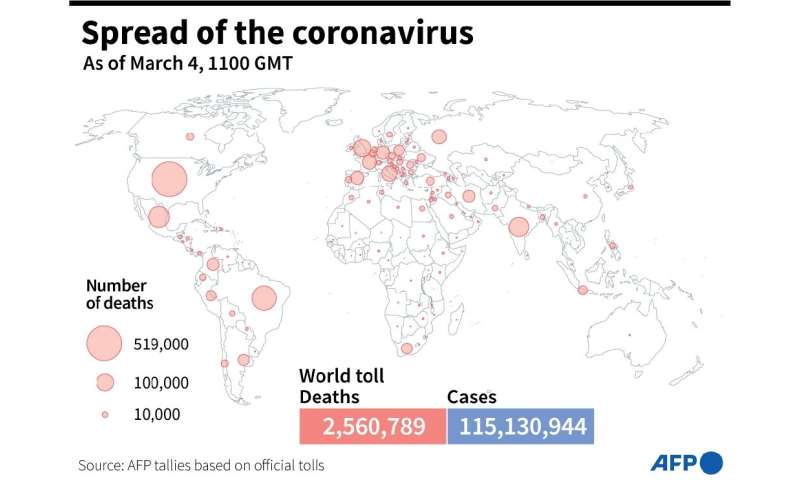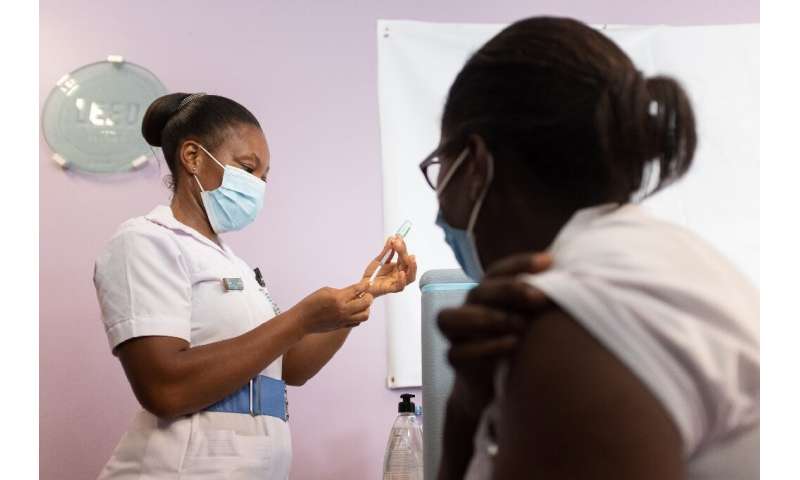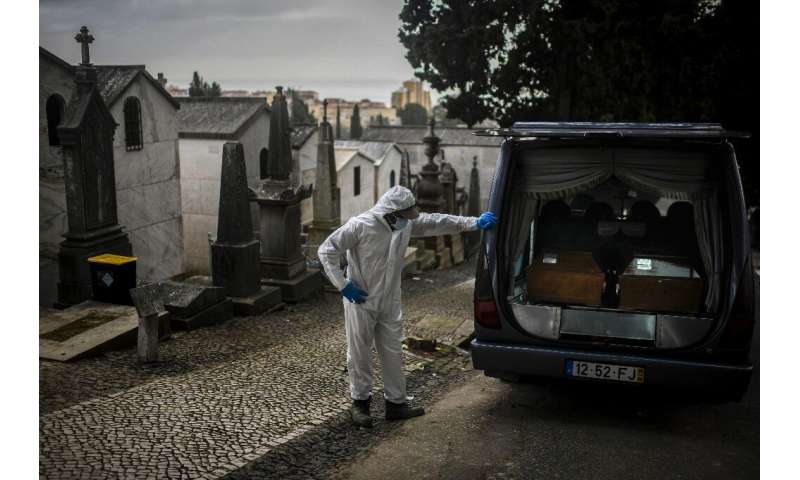EU opens way for Russian jabs as UK intensifies vaccine push

Russian coronavirus shots could soon be doled out across Europe after the EU said it was assessing the vaccine, as Britain pushed ahead with a plan to fast-track jabs adapted to fight new strains.
The EU’s drug watchdog said it had started a “rolling review” of the Sputnik V shot, prompting Russia to say it could supply doses for 50 million Europeans starting from June.
The 27-nation bloc has already approved three vaccines, but its relatively slow rollout have been widely criticised and some members have gone it alone, approving jabs from Russia and China unilaterally.
The need for a wide vaccine rollout was underscored on Thursday, with the World Health Organization’s (WHO) European branch warning that infections had once again begun to rise in the region.
“This ends a promising six-week decline in new cases,” said WHO Europe’s regional director Hans Kluge.
Hungary is among the European nations suffering a surge in coronavirus infections and deaths, and the government said Thursday it will tighten its lockdown, ordering schools and most shops and businesses to shut.
But leaders around the world are coming under increasing pressure to end lockdowns and business closures that have crushed the global economy.
While Germany is the latest nation to promise an end to restrictions, some US states have begun jettisoning federal requirements to wear masks—much to the chagrin of President Joe Biden who called it “Neanderthal thinking”.

‘A cautious decision’
The pandemic, which has killed more than 2.5 million since emerging in China in late 2019, has shredded the global travel industry.
German airline Lufthansa announced on Thursday a record 6.7 billion euros ($8.1 billion) loss for 2020 with chief executive Carsten Spohr calling the year the “most challenging in the history of our company”.
“Internationally recognised digital vaccination and test certificates must replace travel bans and quarantine,” he said, repeating calls by other airline bosses.
The sporting calendar has also been ripped up by the virus, with Pakistani cricket becoming the latest casualty.
Officials halted the Pakistan Super League, a Twenty20 competition, after seven cases were reported.
And Japan is moving towards a ban on foreign fans at this year’s summer Olympic Games, which has already been rescheduled from last year and faces daily questions over whether it will go ahead in any form.
Japan’s Olympics Minister Tamayo Marukawa said “a cautious decision is necessary” regarding fans.

‘Attempts at secession’
Europe’s vaccine policy remains chaotic and rancorous, with new rows brewing even as old ones are laid to rest.
Germany on Thursday followed France’s lead by authorising the AstraZeneca/Oxford vaccine for over-65s after a bitter row between the Anglo-Swedish firm and European leaders.
Belgium is expected to follow suit soon, after a raft of studies showing the vaccine is effective for the elderly.
However France has now waded into an argument with Austria and Denmark, who are bypassing the EU to broker a vaccine deal directly with Israel.
France’s Foreign Minister Jean-Yves Le Drian acknowledged shortcomings in the EU’s vaccination policies but criticised “attempts at secession” by some countries.
The EU has been trailing in the wake of Britain, which has approved jabs more quickly, sourced them more efficiently and rolled them out more effectively.

Britain was again at the forefront on Thursday, announcing a partnership with public health bodies in Australia, Canada, Singapore and Switzerland to ensure jabs modified to cope with new variants are fast-tracked.
“Our priority is to get effective vaccines to the public in as short a time as possible, without compromising on safety,” Christian Schneider of the UK’s medicines watchdog said.
As Europe remains mired in rows and faltering rollouts, several of the biggest African countries have only just begun their vaccination campaigns in earnest.
However, there was finally respite for some of those hardest hit by the pandemic, with exhausted health workers in South Africa celebrating a drop in cases and officials declaring the second wave over.
“One death is enough to traumatise nurses,” Phuti Kobo, a ward manager at Thembisa Hospital near Johannesburg, told AFP.
Source: Read Full Article
